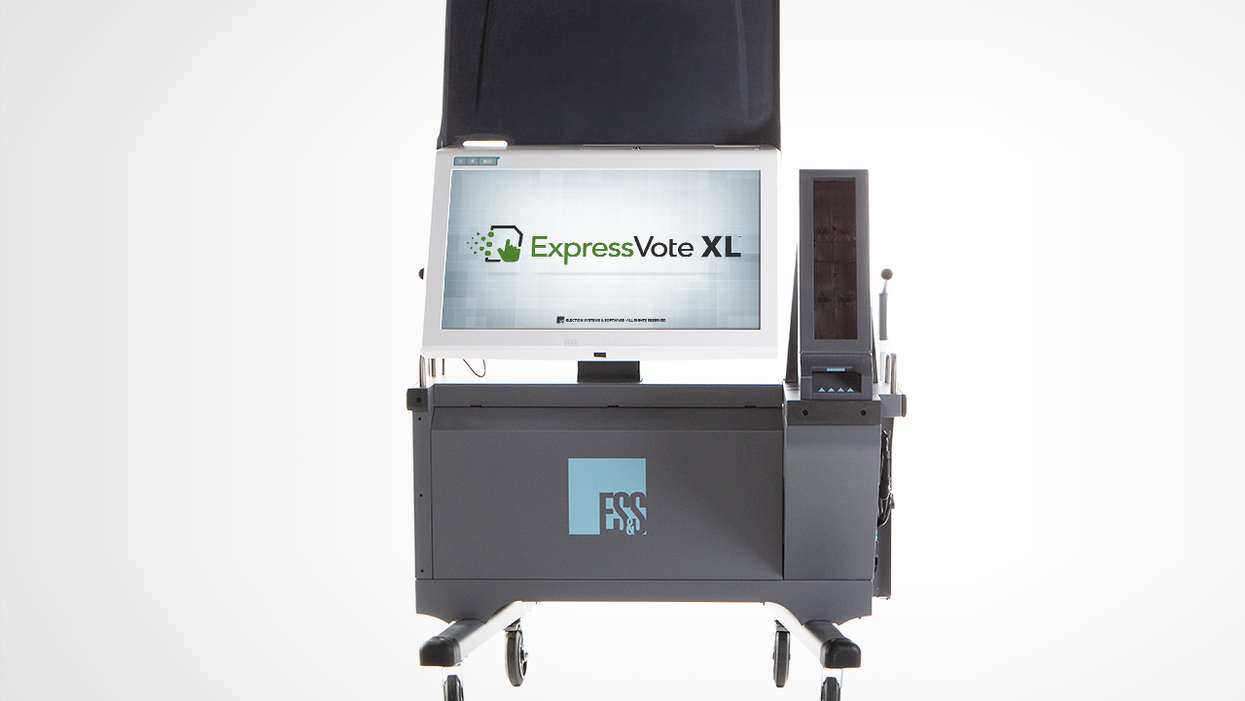Pennsylvania continues to be a hotspot in the ongoing national campaign to create voting systems that are better able to fend off hacking attempts next year.
Jill Stein, the 2016 Green Party presidential candidate, recently asked a federal judge to declare state officials in violation of a court-approved agreement because they certified a voting system that doesn't generate a readable paper ballot.
And a Republican county official, after being told by state officials he would soon face legal action, changed his mind and said he would support purchasing new voting machines.
Pennsylvania's voting systems carry significance far beyond the state's borders for several reasons. Until recently, it was one of just a handful of states in which votes were still stored electronically without printed ballots. Election security experts say in order to have the best shot at surviving a hacking attempt, voting systems must generate a paper record for each ballot.
Also, Pennsylvania was among 21 states the Department of Homeland Security said Russian operatives unsuccessfully attempted to hack in the last presidential contest, when Donald Trump carried the state by just seven-tenths of a percentage point. A perennial presidential bellwether, Pennsylvania (with 20 electoral votes) now looks like the second biggest prize (after Florida) that nominees of both parties will be genuinely in the hunt for next fall.
This week, Commissioner Mike Pries of Dauphin County told The Associated Press that after meeting with state officials and being warned of possible legal action, he had decided to vote to buy new machines for the county, which is dominated by the state capital of Harrisburg.
Democratic Gov. Tom Wolf has ordered all counties to purchase new voting machines in time for the 2020 balloting. But officials in Dauphin had signaled theirs would be the only county to defy the order. The county's other commissioners, one Democrat and one Republican, have yet to meet with state officials on the issue.
Stein's legal action focuses on the state's decision to certify the Election Systems & Software ExpressVote XL voting system.
Her court filing says the system violates the agreement she made last year to settle a lawsuit she filed in 2016, when she took less than 1 percent of the statewide presidential vote. The suit declared the "Pennsylvania election system is a national disgrace."
The ExpressVote XL system generates a paper record of votes but only with a barcode. That, the new legal filing argues, violates the settlement agreement, which requires all voting systems in the state to create a readable paper record. Stein asked the judge to rescind the certification of the Express XL system, in use in Philadelphia and other counties.
Elections Systems & Software officials have said their system is secure and meets all of the state requirements.
Pennsylvania's attempt to replace voting machines across the state in time for the May 15 primary has drawn a lot of attention. By the time of last month's local elections, 45 of the state's 67 counties had upgraded their systems and eight more were on their way.
But problems on election night with the touchscreens of the Express Vote XL system used in Northampton County, centered on Easton, forced local officials to hand count ballots.
The Democratic secretary of State, Kathy Boockvar, said that, overall, the election went well. "The election was carried out statewide with little incident," she said. "That's especially impressive given that 45 counties were using new voting systems."




















Trump & Hegseth gave Mark Kelly a huge 2028 gift